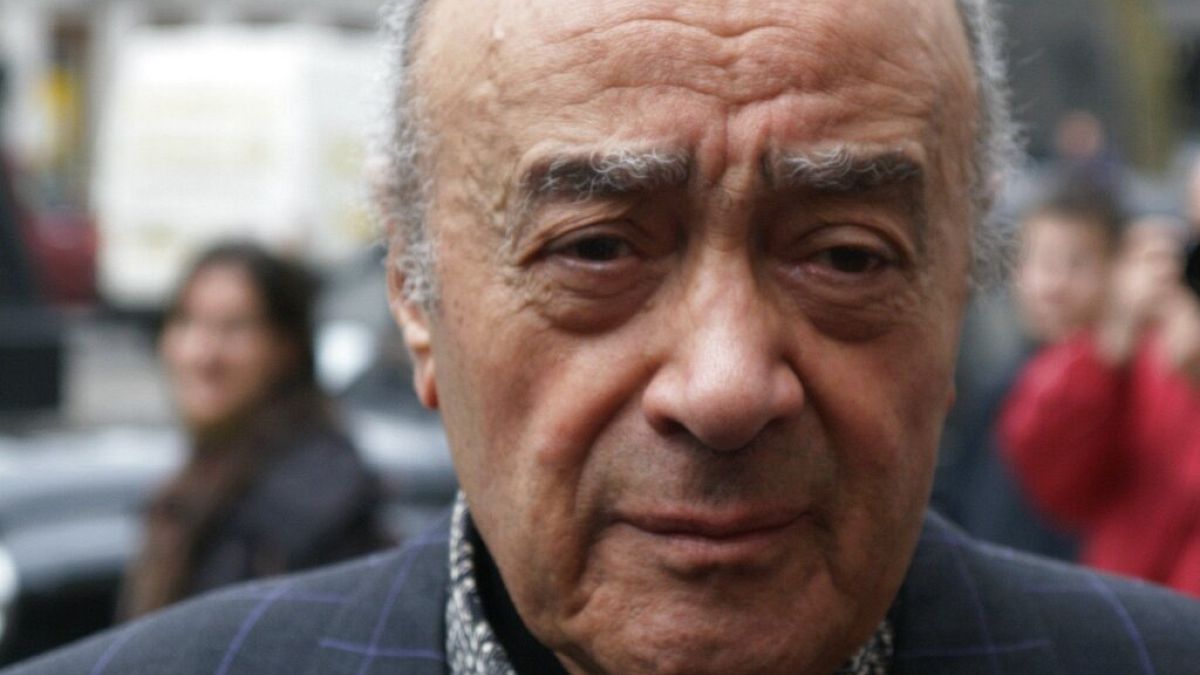Dozens of women have come forward alleging that they were raped and sexually abused by Mohamed Al Fayed, the former owner of the iconic London department store Harrods. Lawyers representing these women compared the accusations to cases involving notorious sex offenders such as Jimmy Savile, Jeffrey Epstein, and Harvey Weinstein. They described Al Fayed as a “monster” who took advantage of young women and girls who worked at the department store during his 25-year ownership.
During a press briefing in London following the release of the BBC documentary “Al-Fayed: Predator At Harrods,” lead lawyer Dean Armstrong highlighted the similarities between this case and those of other high-profile abusers. Comparisons were drawn to Savile due to the alleged knowledge of the institution, to Epstein because of a procurement system in place to source victims, and to Weinstein because of the abuse of power by a person at the top of the organization. One victim, speaking under the name Natacha, described Al Fayed as “highly manipulative” and someone who preyed on the most vulnerable individuals, including those who needed to pay rent and those without parental protection.
The current owners of Harrods, who bought out Al Fayed in 2010, expressed their shock and dismay over the abuse allegations. They claimed to have only become aware of the allegations last year and stated their commitment to preventing such behavior in the future. However, Armstrong disputed the claim that the owners were unaware, citing decades of sexual allegations against Al Fayed. He called on Harrods to take responsibility and address the situation promptly. U.S. lawyer Gloria Allred, known for representing victims in high-profile sexual abuse cases, also spoke out against the toxic and abusive environment that existed beneath the glitz and glamour of the prestigious store.
The allegations against Mohamed Al Fayed have raised serious concerns about the culture of abuse and exploitation that may have existed within Harrods. The comparison to other infamous cases of sexual abuse further underscores the severity of the accusations. The victims who have come forward bravely shared their experiences, shedding light on the alleged misconduct that occurred during Al Fayed’s ownership of the department store. The involvement of prominent lawyers and advocates in this case indicates the seriousness of the situation and the need for accountability and justice.
The revelations about Mohamed Al Fayed’s alleged actions at Harrods have sparked a public outcry and renewed discussions about workplace harassment and abuse of power. The need for companies to address and prevent such behavior within their organizations has been highlighted by this case. The victims’ accounts have painted a disturbing picture of a toxic and unsafe environment that operated beneath the facade of a luxurious and prestigious establishment. It is essential for institutions like Harrods to take responsibility, acknowledge the harm caused, and take concrete steps to prevent similar incidents from happening in the future.
As the legal proceedings progress and more details emerge, it is crucial for the truth to be fully investigated and for justice to be served for the victims. The courage of those who have come forward to share their stories should be acknowledged and respected. The case of Mohamed Al Fayed and the allegations against him serve as a reminder of the importance of holding individuals and organizations accountable for their actions. This is a crucial step towards creating a safer and more equitable society where abuse and exploitation are not tolerated.











